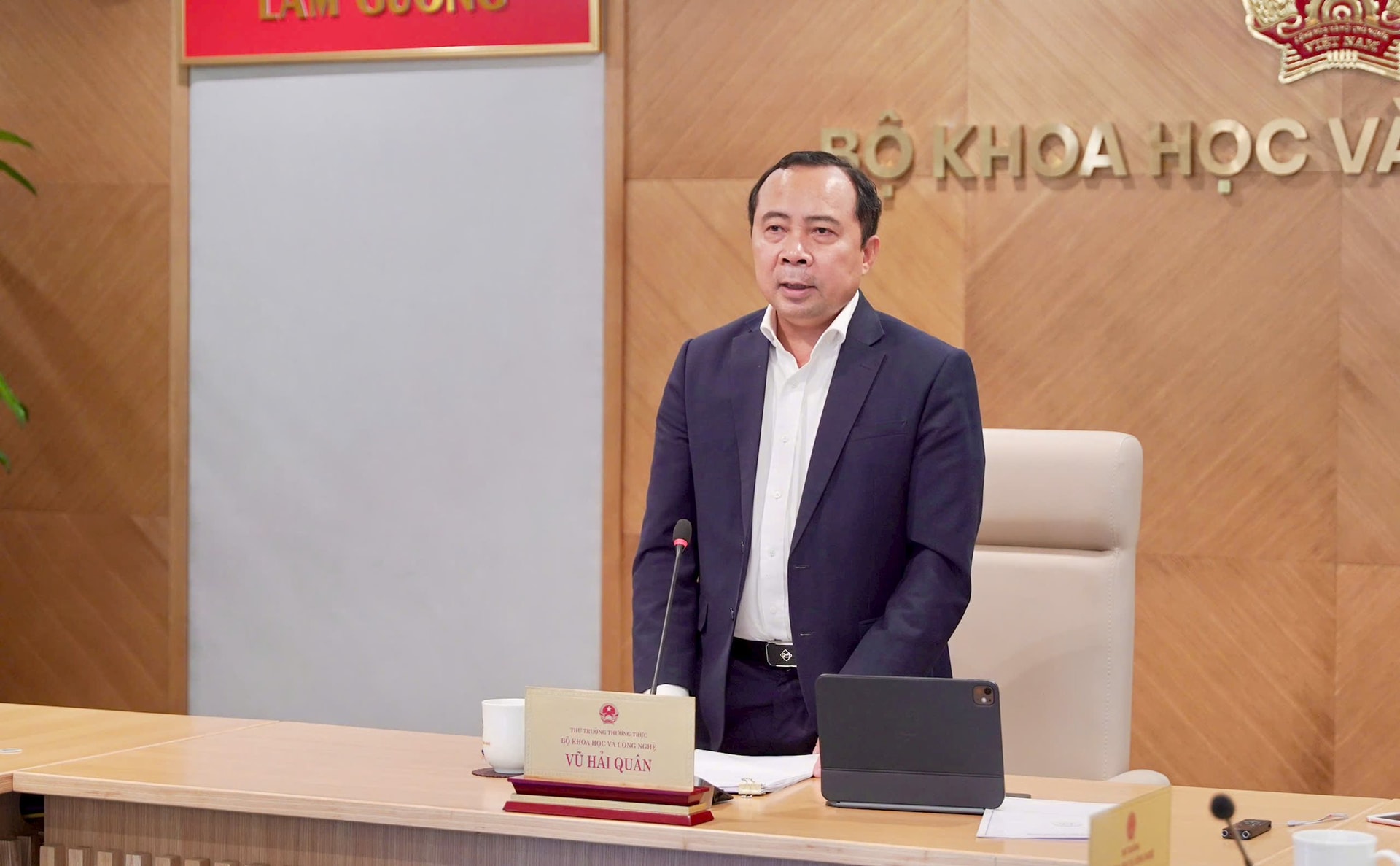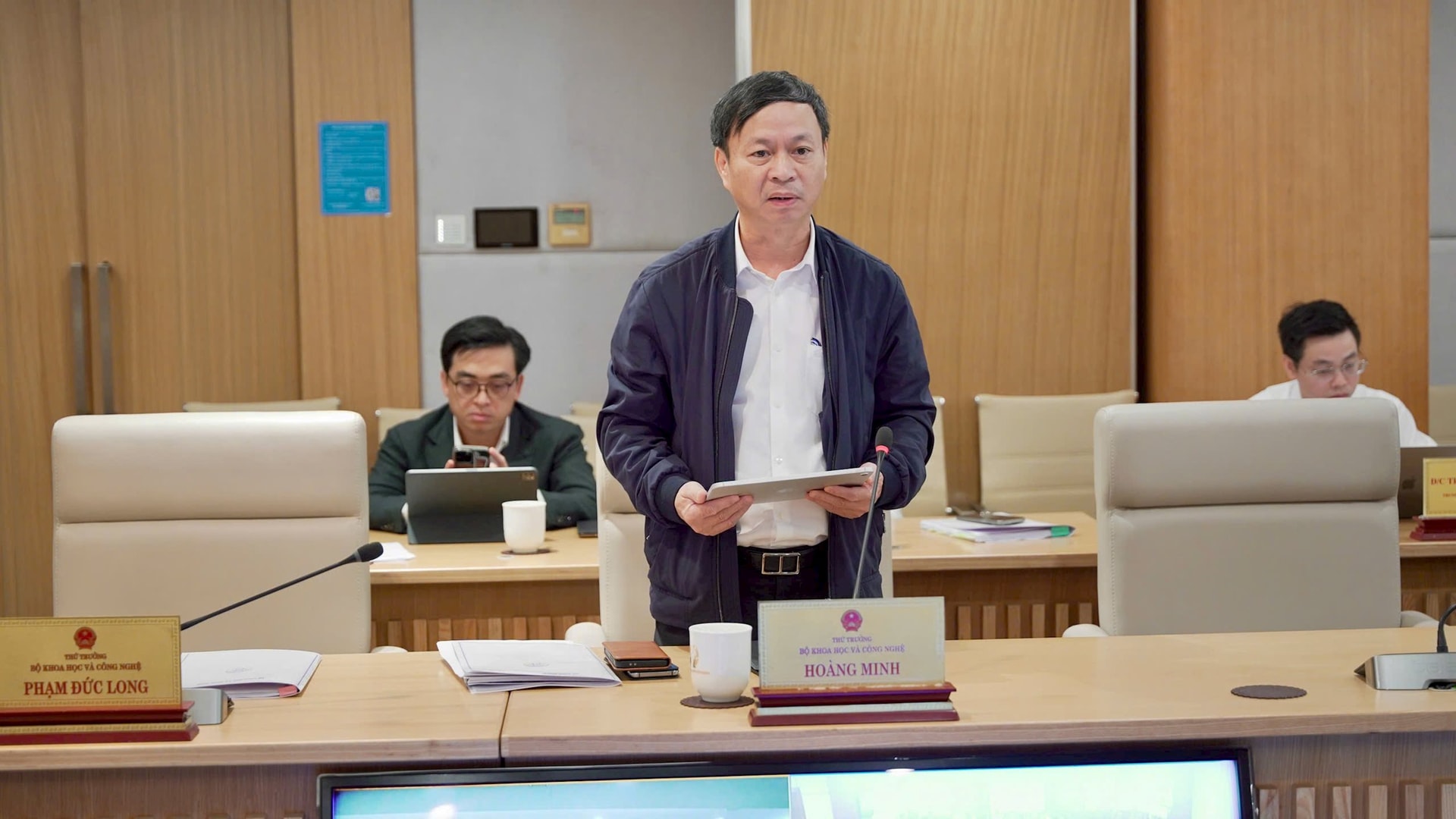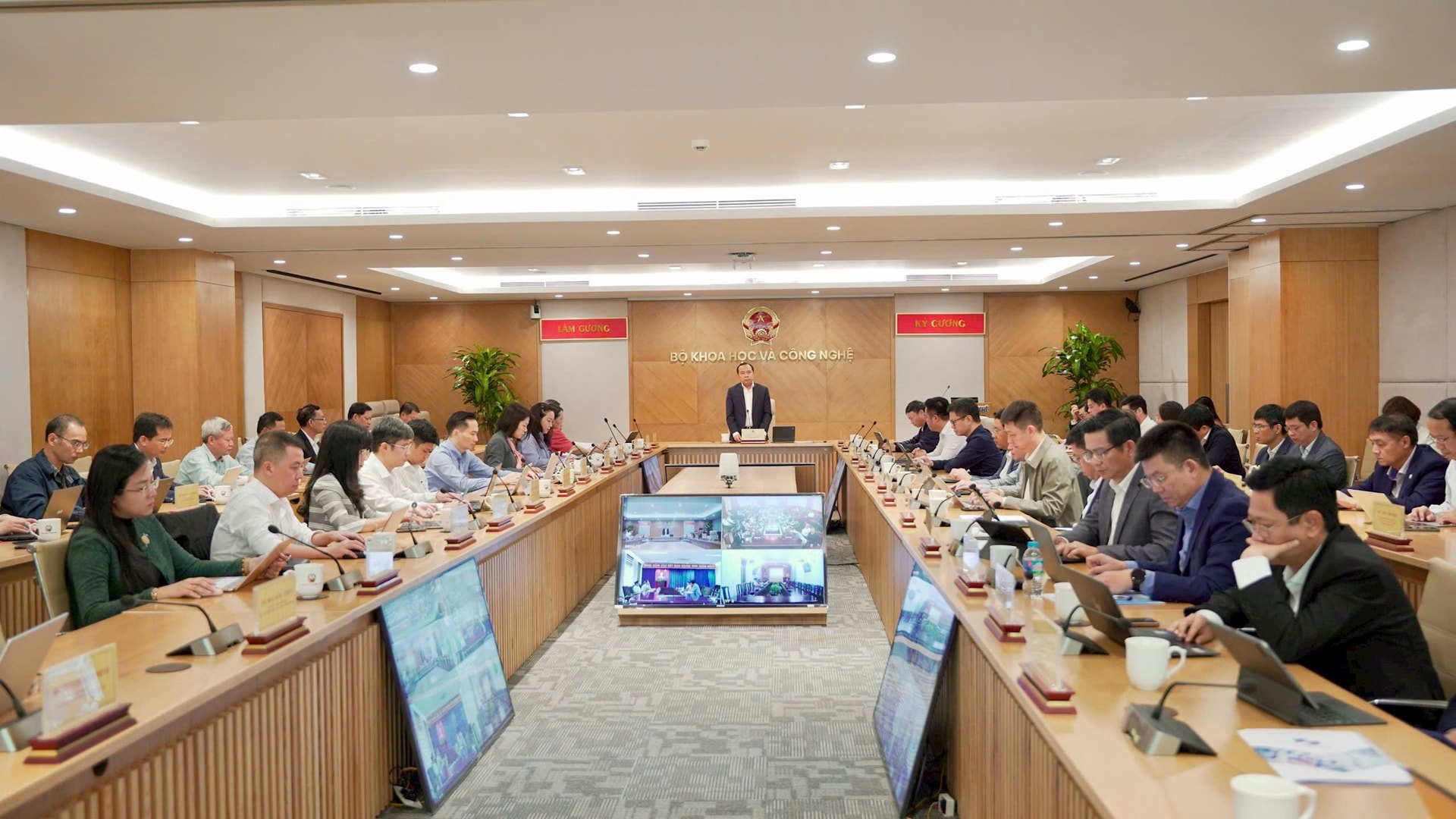Accelerating institutional development, promoting innovation, and advancing smart standards
“Successful digital transformation must begin with innovating working methods” — this was the emphasis made by the Permanent Deputy Minister of the Ministry of Science and Technology, Vu Hai Quan, at the online briefing conference on state management tasks for October, held on the morning of November 7.
Focusing on improving institutions, standardizing operational processes, and laying the foundation for comprehensive digital transformation
According to the report of the Ministry’s Office, in October, the Ministry of Science and Technology submitted 7 Decrees to the Government, 5 Decisions to the Prime Minister, and issued 9 Circulars under its authority. These documents serve as foundational legal frameworks to improve policies supporting science, technology, innovation, and national digital transformation.
Key documents issued during the month include: the National Digital Architecture Framework, the Ministry of Science and Technology’s Data Strategy to 2030, and guidelines for building and integrating information and digital infrastructure at local levels, thereby enhancing the efficiency of state management and ensuring seamless data connectivity across the sector.
Along with institutional development efforts, the Ministry also presided over and coordinated the organization of several major events such as: the International Digital Week in Ninh Binh, National Digital Transformation Day, and the Science and Technology Journalism Awards Ceremony. These activities help spread the spirit of innovation and encourage the scientific community and businesses to actively apply technology in production and business.

The report of the Ministry’s Office also said that the management of the executive management in the month continues to have many improvements. The operation of the online mission management system shows a clear effect: The rate of slow-stream tasks is sharply reduced, the coordination between departments, departments, institutes and career units is more closely agreed.
The new electronic archives and clerical system will be implemented in November to reduce the intermediary process, saving time processing work.
Innovating management approaches, promoting responsibility and proactiveness of each unit.
Speaking at the conference, Deputy Minister Hoang Minh said that the management, reporting and summarizing data between current units should be standardized and unified to improve the effectiveness of governance.
“The operation of the Ministry must be interconnected and synchronous. Each task needs a specific responsibility, not to cause the extrusion or overlap in coordination,” Deputy Minister Hoang Minh emphasized.
The Deputy Minister of Science and Technology asked the units to review the entire reporting process, from the synthesis and evaluation to the signing process, ensuring accuracy and timeliness. The implementation of the work management e-system should be further promoted so that every process from receiving and processing to monitoring results is done online, minimizing paperwork, saving time and administrative costs.

At the conference, the presentations from agencies under the Ministry of Science and Technology were presented with the same goal: Improving the quality of institutional construction, developing a nationwide innovation network and promoting the application of smart standards in the digital era.
These are 3 key development directions, clearly demonstrating the Ministry’s vision in the 2025-2030 period, taking science, technology and innovation as the driving force of national growth.
Tightening administrative discipline, renewing executive thinking, taking efficiency as a measure
Concluding the conference, Permanent Deputy Minister Vu Hai Quan recognized the spirit of proactive work and responsibility of the units, and assessed October as the “critical transition stage” to prepare for the year-end sprint.
“In the coming time, the Ministry needs to move strongly from administrative management to operating according to the results. Each task must clearly identify the output, deadline and the person responsible for," Permanent Deputy Minister Vu Hai Quan emphasized.

Permanent Deputy Minister Vu Hai Quan requested that the Ministry’s Office compile all results from the briefing sessions, identify remaining key tasks, and report progress weekly to promptly resolve any difficulties. Specialized units must coordinate closely to avoid fragmented handling of tasks.
“Every task, no matter how small, must be carried out thoroughly, produce concrete results, and have clearly accountable personnel,” the Permanent Deputy Minister emphasized./.
Translated by Vietnam Journal of Science and Technology (VJST - MOST).
